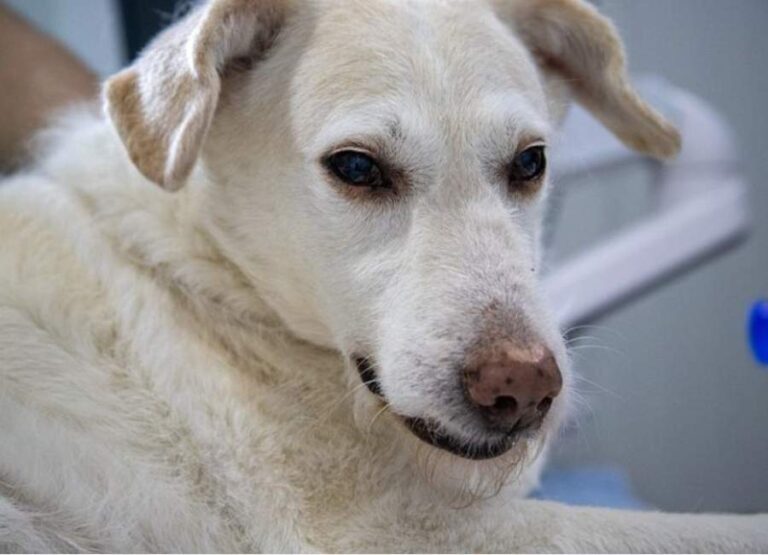10 Common Causes Of Shih Tzu Shaking You Should Know

Shih Tzu shaking is a serious issue, however, this depends on the causes of the Shih Tzu shaking, which is what we will be discussing in this post.
There are lots of things that can lead to Shih Tzu shaking or trembling which we are going to outline and discuss.
Never take your Shih Tzu shaking for granted, no matter the cause, always make an appointment with your vet.
That been said, let’s quickly get down to some reasons why your Shih Tzu is shaking or trembling.
Reasons for Shih Tzu Shaking
Shivering and shaking may signal a serious issue, such as poisoning, renal disease, or injury, in Shih Tzus.
If your Shih Tzu starts trembling or shivering, look for other signs including diarrhea, vomiting, or limping. Then get in touch with your veterinarian right away.
Here are some of the causes of your Shih Tzu’s shivering or shaking, some of which are beyond your control:
Signs of cold
The normal temperature of a Shih Tzu is between 38 and 39 °C, this means that if the temperature of the room or environment drops your Shih Tzu will be affected.
Even though Shih Tzus comes in long coats they still get cold, however, this totally depends on your geographic region.
Your Shih Tzus may be shaking if the temperature of the environment drops to a temperature that your pup can’t handle.
So any time you see your Shih Tzu shaking, consider the temperature of your environment.
Some helpful tips in handling signs of cold in Shih Tzus:
- Never let your Shih Tzu go outside when the temperature of the environment is too cold.
- Never bath your Shih Tzu with cold during the cold season.
- When the environment or your home is too cold, please keep your pup room warm.
- If you have tried warming up your room and the shaking persists, do not hesitate to take your Shih Tzu to the clinic.
- If you live in a cold climate, try to invest in a dog cold jacket.
- Try warming your dog up with a canine jacket, exercise, or a change of location.
Signs of Old Age
When Shih Tzus tremble or shiver as they age, there is nothing you can do to help them.
This is because their joints are weak and ancient, and they can no longer comfortably support the weight of their bodies.
When Shih Tzus become older, they are more likely to have tremors in both their rear and front legs, making it difficult for them to move properly and resulting in shaking or shivering.
Some tips to help with old age in Shih Tzus:
- The sole therapy is to keep in touch with your veterinarian and prevent over-stressing your Shih Tzus as they get older.
- Avoid unnecessary long walk as your Shih Tzu get older.
- Avoid playing the fetch game as your Shih Tzus get older.
Signs of aging in Shih Tzus
- Vision impairment
- Hearing impairment
- Weight gain
- Loss of energy
- Arthritis & joint problems
- Loss of hair, muscle tone, teeth & skin elasticity
- Weakened immune system
- Decreased mental ability
Recommended post: 10 Most Common Shih Tzu Old Age Problems & Helpful Tips.
Signs of toxin ingestion
Some chemicals are safe for humans but poisonous to small breeds of dogs like Shih Tzus.
Nicotine is a poisoning substance from cigarettes, xylitol is a sugar substitute present in many chewing gums, both of which are dangerous for small breeds of dogs like Shih Tzus
In small breeds of dogs like Shih Tzus, these toxins or poisons can induce uncontrollable shaking and shivering.
Your Shih Tzus might be stung by a bee, bitten by a snake, or poisoned by poor food, and scorpions could sting them.
Even if you don’t witness your dog come into touch with something harmful, this is a severe problem.
Small dogs like Shih Tzus respond fast to ingestion of toxins due to their body weight and strength.
Symptoms of poisoning or toxins in Shih Tzus include:
- Weakness
- Disorientation
- Depression
- Excessive drooling
- Continues vomiting
- Continues diarrhea
- Uncontrollable seizures
If you believe or see your Shih Tzus has swallowed something potentially hazardous or got bitten by any small animal please do not hesitate to take him to the veterinarian.
Signs of nausea
In Shih Tzus, uncontrollable shaking and shivering might indicate nausea, which can be caused by the following:
- Illness
- Medication side effects
- Overeating
- Motion sickness
- Ingesting poisonous plants
- Kidney or liver damage.
Nausea in small dogs like Shih Tzus can be identified by:
- Lip-smacking
- Salivating
- Swallowing frequently
- Vomiting
If your Shih Tzu’s shivering is accompanied by unusual behavior or seems out of the ordinary, call your veterinarian right once.
Sign of high fever
A Shih Tzu’s typical body temperature is between 38 and 39 degrees Celsius, therefore if it rises over that, it might be a symptom of a fever.
Shih Tzus have been known to tremble owing to high temperatures, which may be caused by a variety of factors such:
- Heatstroke
- Reaction to a vaccine
- Ingestion of a toxic product
- Infections
- Inflammations
- Internal and external parasites
- Poisoning
As a result, it’s critical to make an accurate evaluation in order to discern between circumstances that demand immediate action and those that don’t.
Signs of high fever in Shih Tzus:
- Dry nose
- Increased heart beat
- Increased respiratory rate
- Loss of appetite and thirst
- Seizures or shock
- Cough
- Vomiting
- Diarrhea
- Depressed and apathetic behavior
- Sleeping more sleep than usual
Sign of generalized tremor syndrome
Small breeds like Shih Tzus, tiny pinschers, and Chihuahuas are prone to generalized tremor syndrome.
This condition, also known as shaker syndrome, is characterized by full-body tremors, similar to when a dog gets chilly.
The symptoms of generalized tremor syndrome may differ from one dog to another, but in Shih Tzus, it usually starts between 7 months and 2 years of age.
Although experts aren’t sure what causes generalized tremor syndrome, it’s usually thought to be innocuous.
Your veterinarian may prescribe corticosteroids for your dog, however, shaking may be an unavoidable part of life for certain dogs.
Sign of distemper
Distemper is a virus that mostly affects pups and young dogs that have not received all of their vaccinations.
The gastrointestinal, neurological, and respiratory systems are all affected by the distemper virus. Most of the time, the symptoms of distemper are deadly.
A veterinarian is required to treat distemper. If you believe your dog has canine distemper, call your veterinarian as soon as possible.
The good news is that the distemper is rare in Shih Tzus because most Shih Tzus are vaccinated.
Shaking and shivering are common signs of distemper, other signs include:
- Nose discharge
- Coughing
- Fever
- Lethargy
- Reduced appetite
- Vomiting
- Eye discharge
Treatment of distemper include:
- Antibiotics
- Airway dilators
- Physical therapy
- Fluids to help manage dehydration.
Sign of seizure
Epilepsy is a neurological disease that causes collapse and jerking in certain dogs, this condition affects both large and small dogs, as well as other animals.
While seizures may not cause physical pain to the dog, they might result in damage if the dog falls or knocks items over and into itself.
If your Shih Tzu begins to experience seizures, contact your veterinarian right once. Seizure control medicines can be used to treat this.
Symptoms of seizure in Shih Tzus include:
- Collapsing
- Jerking
- Stiffening
- Muscle twitching
- Loss of consciousness
- Excessive drooling
- Tongue chewing
- Foaming at the mouth.
Sign of excitement
When a family member of a Shih Tzu returns home, the Shih Tzu becomes thrilled, this is because they are bred to thrive on human companionship.
This enthusiasm may sometimes be seen oozing from the dog’s pores, resulting in shaking or trembling but not a sign of anxiety or illness.
In a similar vein, Shih Tzus may tremble and shiver as they are ready to consume their favorite food or play with their favorite toy.
Even arriving home late at night might cause some Shih Tzus to tremble, yelp, and even urinate with excitement, this is not associated with illness.
While some of these characteristics are common in companion dogs like Shih Tzus you can assist your Shih Tzu to relax by keeping your greetings calm and brief.
Find out the common reasons why Shih Tzus bark at night!!!
Signs of pain
If your older Shih Tzu shakes or chills, especially in the hindquarters, he might be suffering from one of the signs of canine arthritis.
Infections, traumas, and even dental issues may cause a lot of pain in small dogs like Shih Tzu.
Depending on the cause of your pup’s suffering, your veterinarian may recommend additional diagnostic testing and/or pain treatment.
Shaking, shivering, and muscular tremors can indicate serious illnesses such as distemper, hypoglycemia, Addison’s disease, and inflammatory brain disease, as well as more common ailments such as a stomach ache.
Too many pains can cause Shih Tzus to constantly shake or shiver, so always pay close attention to your Shih Tzu when you notice involuntary shaking.
Shih Tzu shaking and panting
Excessive panting and shivering in Shih Tzus is typically an indication of stress, more acute pain, discomfort, poisoning, renal illness, injury, allergic responses, toxins, bites, and stings.
As long as your Shih Tzu isn’t shaking out of excitement, never take your Shih Tzu’s shaking for granted; regardless of the cause, schedule an appointment with your veterinarian.
Find out more about Shih Tzu anxiety symptoms and causes!!!
Shih Tzu shaking head
Shih Tzu shaking head can be caused by a variety of health issues, including ear infections, flea bites on the head skin, allergies, and head tremors as a consequence of a head injury.
However, Shih Tzu shaking head can also be caused by old age or other illnesses.
Due to the way their ears hang down, Shih Tzu dogs are prone to ear infections, and ear infections are one of the most common reasons why their owners see their doctors each year.
Shaking of the head in Shih Tzus might signal an ear infection, ear mites, parasites, allergies, hematoma, toxins, or even balance issues as your Shih Tzu becomes older.
Examine their ears, and if nothing appears to be wrong, but the behavior continues, call your veterinarian.
Find out more about what makes Shih Tzus happy!!!
Shih Tzu shaking back legs
Patellar luxation or Generalized tremor syndrome, which is frequent in tiny breeds like shih tzus, miniature pinschers, and Chihuahuas, might be the reason of Shih Tzu shaking rear legs.
Remember that shaking doesn’t always imply your dog has a neck or spine injury or a neurological condition; but, if you’re still worried, consult your veterinarian. Most of the time, it’s anxiety, a cold, or tremors that come with becoming older.
Patellar luxation is a frequent condition that affects many dogs’ rear legs, particularly petite breeds like the Shih Tzu, this condition is also known as sliding or floating kneecaps.
A kneecap’s precise term is the patella, and luxation simply indicates that it has slipped out of position.
Find out more about Shih Tzu behavior problems you should know and ways to fix them!!!
Shih Tzu shaking and vomiting
Shih Tzu shaking and vomiting can be an upset stomach due to something the Shih Tzu ate such as a hazardous plant, onion ball, garlic ball, or poisoned substance. It can also be caused by a bloated stomach, pancreatitis, or renal illness.
Your Shih Tzu’s trembling and vomiting are signs that something is amiss, and they should seek medical attention as soon as possible.
Keep an eye on how often they’re vomiting up, as well as the volume and color of their vomit, and contact your veterinarian right once if it doesn’t stop within a few hours.
Food out more about Shih Tzu eating problems causes and how to fix them!!!
13 year old Shih Tzu shaking
13 year old Shih Tzu shaking can become a serious condition if not reported to a veterinarian, this could have been caused by old age, allergies, generalized tremor syndrome, as well as cold.
Small breeds like shih tzus, tiny pinschers, and Chihuahuas are prone to generalized tremor syndrome. This illness usually appears around puberty, although it can worsen with age.


![Head Trauma in Dogs [Signs, Causes & Treatment] Head Trauma in Dogs](https://petcreeks.com/wp-content/uploads/2023/12/pexels-mikhail-nilov-7469230.jpg)



